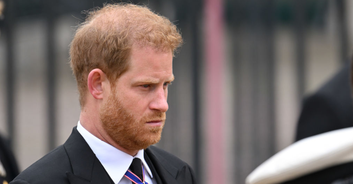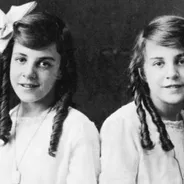Mental health remains a taboo topic in many families, businesses and friendship groups - despite the desperate campaigning of those who have suffered at the hands of depression, anxiety and self harm or worse still, those who have lost loved ones to suicide.
Suicide is now considered a major national public health issue in the United States, where the suicide rate increased by 24 per cent between 1999 and 2014. In the UK, it is the single biggest killer of men under the age of 45. That more awareness is needed is perfectly highlighted by the prevalence of responses like “your life is great, how can you be depressed?”
However, CALM (Campaign Against Living Miserably) have been fighting for greater awareness of male suicide and undiagnosed depression. Every week in the UK, 84 men take their own lives. This inspired the Project 84 petition which was launched by CALM and Matthew Smith, whose brother Dan took his life 13 years ago.
Today, on World Mental Health Day, the Project 84 petition reached its goal - not in terms of signatures but governmental change. Prime Minister Theresa May appointed Jackie Doyle-Price as the first ever minister for suicide prevention.

“Around 6,000 lives are lost to suicide in the UK every year,” states Simon Gunning, CEO of CALM. “This has a huge emotional and societal impact across the whole of the UK and, whilst government figures state that each suicide costs the country £1.67 million, the real cost is in the devastation each and every suicide leaves behind.”
He continues: “That’s why, as a part of CALM’s #Project84 campaign in March and together with Matthew Smith who lost his brother to suicide, we launched a petition calling for a Minister for Suicide Prevention. We did so with the aim that, through real government action, significantly fewer families would have to experience the trauma that Matthew’s family lived through and fewer people would feel that life was not worth living.”
The news of the new appointment was announced during the government’s inaugural global health summit. The conference sees delegates from more than 50 countries assemble in the capital. It is hoped that, rather than being seen to address the issue, the governments represented at this event will implement tangible change and the UK’s appointment of a minister for suicide seems like a good step.
“With almost 400,000 signatures,” Simon adds, “the petition reflects how much the nation cares about tackling suicide. CALM took this on and consulted with Number 10 on the role for a new Minister for Suicide Prevention. Today, we’re thrilled to welcome the Prime Minister’s announcement of this appointment. We have high hopes for the Minister’s potential impact, through shining a light on suicide and its devastating effects, de-stigmatising the issue, and continuing to build support for all those affected across the UK.”

“My brother Dan, who I lost to suicide, was my best pal and my idol,” explains Matthew Smith of the Project 84 petition. “Ever since, I’ve been pushing for change in his name, so that no other family has to go through what we did. When I launched the petition with CALM, and saw an outpouring of support from hundreds of thousands of people, I was overwhelmed.”
CALM hopes to raise awareness of the male suicide issue and remove the stigma from mental health issues. Those suffering with persistent negative thoughts, agoraphobia or even stress-related conditions may find themselves in need of help but there remains a barrier which has only partially been broken down.

“I knew suicide was a tough issue from my own experience,” Matthew continues, “but I never imagined quite how many people were touched by this issue and would join me and CALM in calling for change. Nearly four hundred thousand signatures later and we officially have a Minister for Suicide Prevention. It’s incredible and I’m excited for what comes next in terms of improving support up and down the country for people who think taking their own life is their only option and of course for anyone bereaved by suicide.”
Ultimately, it is the taboo - the sense that telling someone you are suffering is a sign of weakness - which leads people to suffer in silence and leads to the stark statistics we have seen.
That suicidal thoughts should be a source of shame comes the idea that suicide is a sin - an archaic religious doctrine designed to profess the sanctity of life. So it is painfully ironic, of course, that this has led to so many preventable deaths.
If you have been affected by any of the issues in this article, contact Your Life Your Voice on 1 800 448 3000, Samaritans on 116 123 or the National Suicide Prevention Hotline on 1 800 273 8255. For recorded information, call Mind on 0300 123 3393












